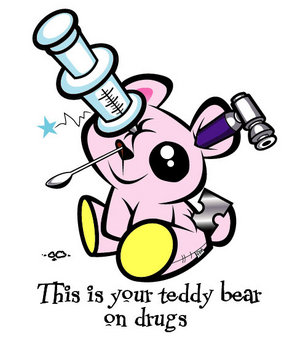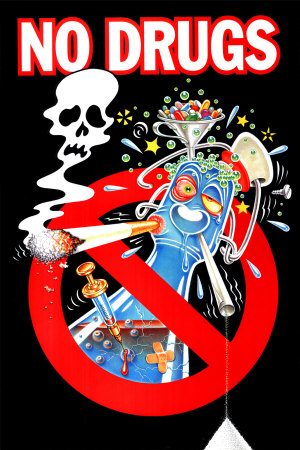
Treatment
In 2004, approximately 22.5 million Americans aged 12 or older needed treatment for substance (alcohol or illicit drug) abuse and addiction. Of these, only 3.8 million people received it (National Sruvey on Drug Use and Health (NSDUH), 2004 ). Behavioral and medication can be used individually or in combination. It is necessary to control withdrawal symptoms which also helps prevent relapse which is the worse case scenario. If using punishment instead of treatment then these factors are not looked at and relapse is not very hard to have. Custom treatment plans that look at all the aspects of someone's life including medical and mental health is needed for a persons success in getting to a drug free lifestyle. The overall goal that is wanted is to change destrcutive behaviors, avoid relapse and leave the life of abuse and addiction. Recovery is a long process which may include several treatments which is why a punishment cannot replace the carefull process that is needed for the ultimate recovery.

Treatment
Offenders of drug abuse have many options of treatment. There are short term treatment options where an addict is involved in a twelve step procedure that was designed for alcohol. While the short term treatment procedure is shorter it provides a more intense action forward to become drug free. The longer programs usually put there patients on medication. Using the medication makes the process become longer because it takes time to have the medication block the need of drugs. Another kind of treatment is behavioral therapy. This includes counseling, cognitive therapy, or psychotherapy or meeting with
many other addicts. Those types of treatment if trying to help everyone get through the addiction together. This helps with support because many people are going through the same problem that you are going through, and you can find someone who overcame the addiction and can provide encouraging words to help. Treatment can be more helpful than punishment because sometimes if you put them in jail when they get let out, sometimes they will go back to their bad ways. With treatment they can get help with not becoming addicted and when they are done hopefully they have changed and wont due drugs again.

Punishment
Partying is a part of college life, but that doesn’t only pertain to alcohol. Drug use is common on most college campuses even though it is prohibited. Since illegal drugs have been introduced in the United States, punishment has been the preferred reaction by authority figures. Most drug users in college aren’t even addicted. They are occasional users. So treatment is not an effective action. Many students think that because they aren’t addicted occasional use is okay, but that does not discourage the fact that it is illegal and absoulutely not tolerated by colleges. Even if the student was addicted to drugs sending them to treatment would not be a good decision. Although it is the students fault for taking part in illegal activities, he/she is a paying student and being sent away in the middle of the term is not fair. There are no consequences of being sent to treatment. It is like a second chance after being caught. The student is put into a drug free environment for a period of time and when their time is up they are pushed right back into the same situation that allowed them access to drugs in the first place.
So our point is, you should probably just stay away from drugs all together. It is not worth the risk of being caught. There are plenty of ways to have a great time without the use of drugs or alcohol. The campus has plenty of activities going on all month long. Such as videogame tournaments, bands, craft nights, movies, etc. We advise that new students just keep up with their homework, and have fun. Go hang out with friends. There is a lot of time to just chill in college. Make college a memorable experience without the use of drugs.

